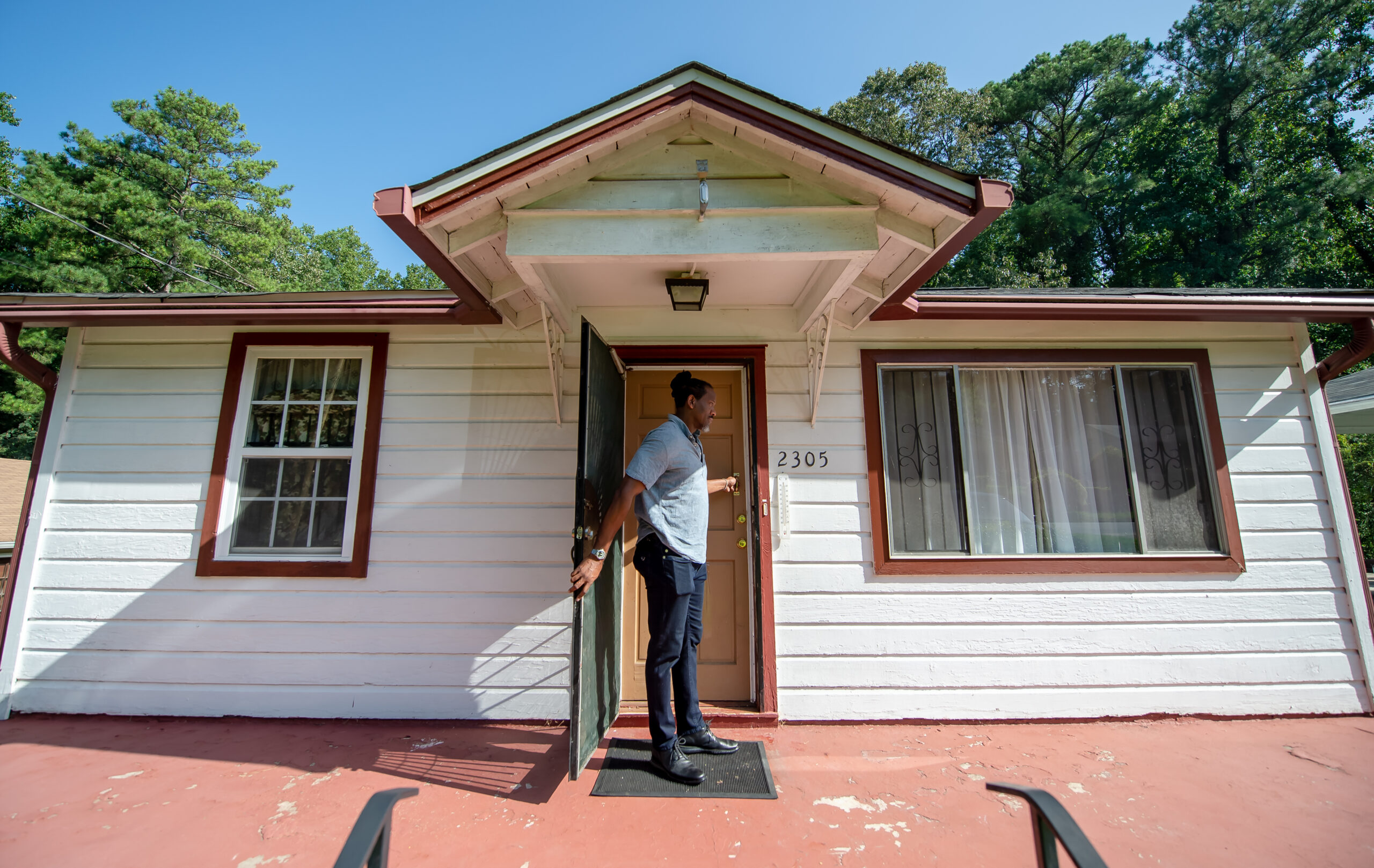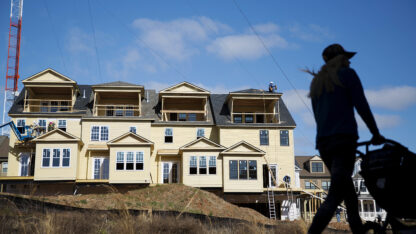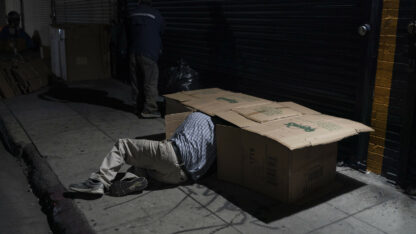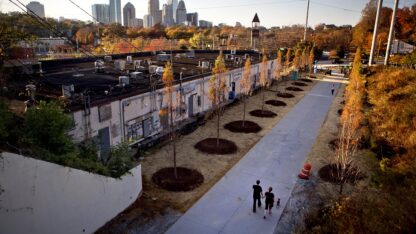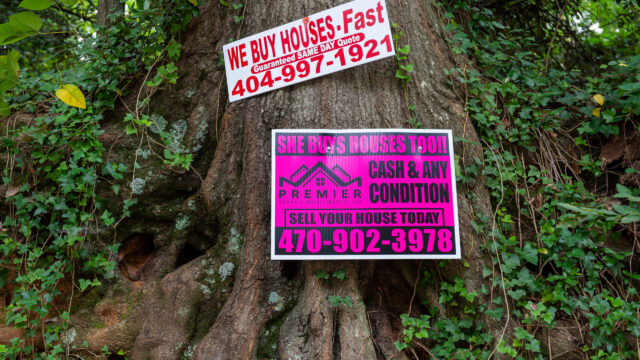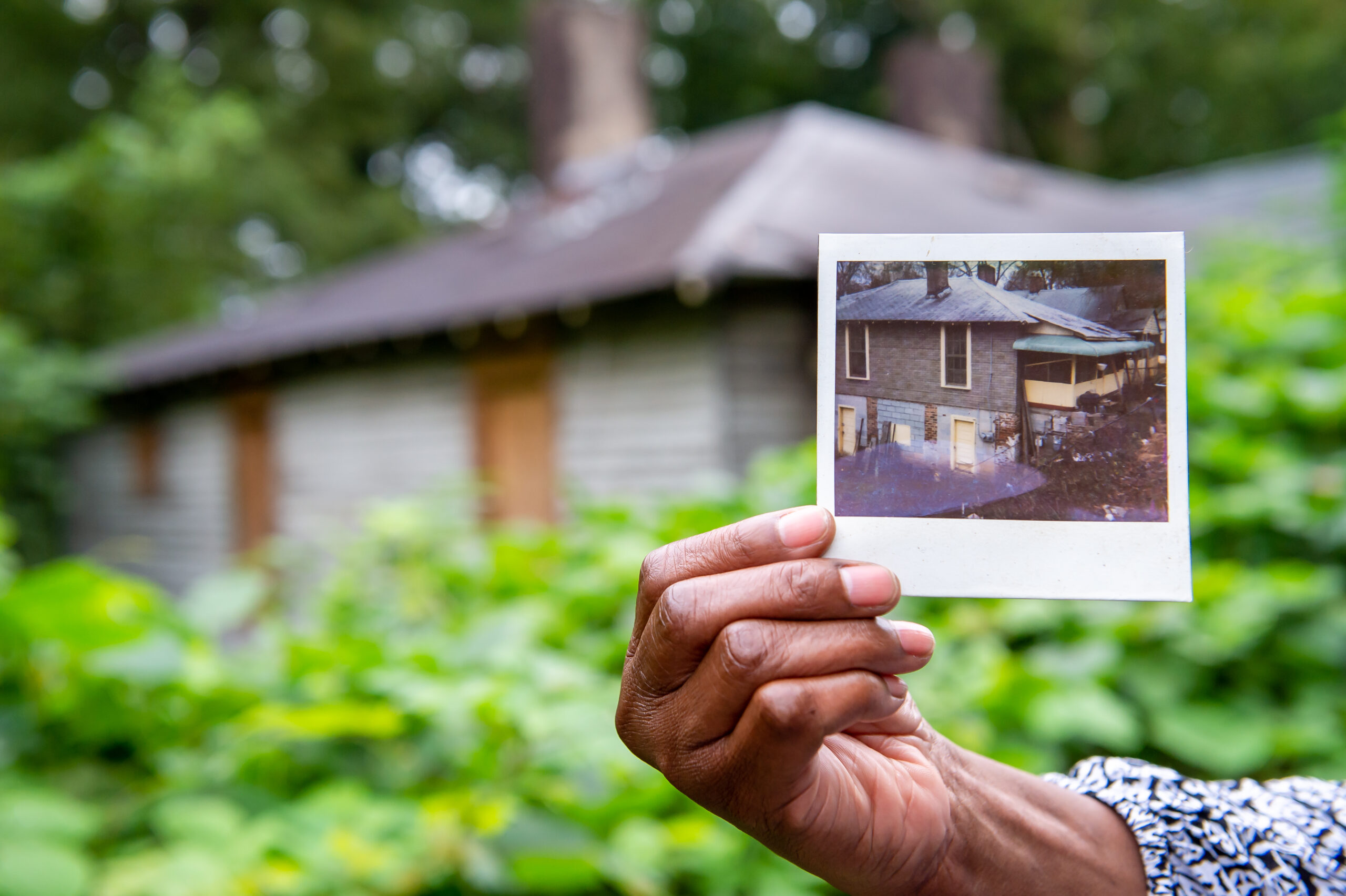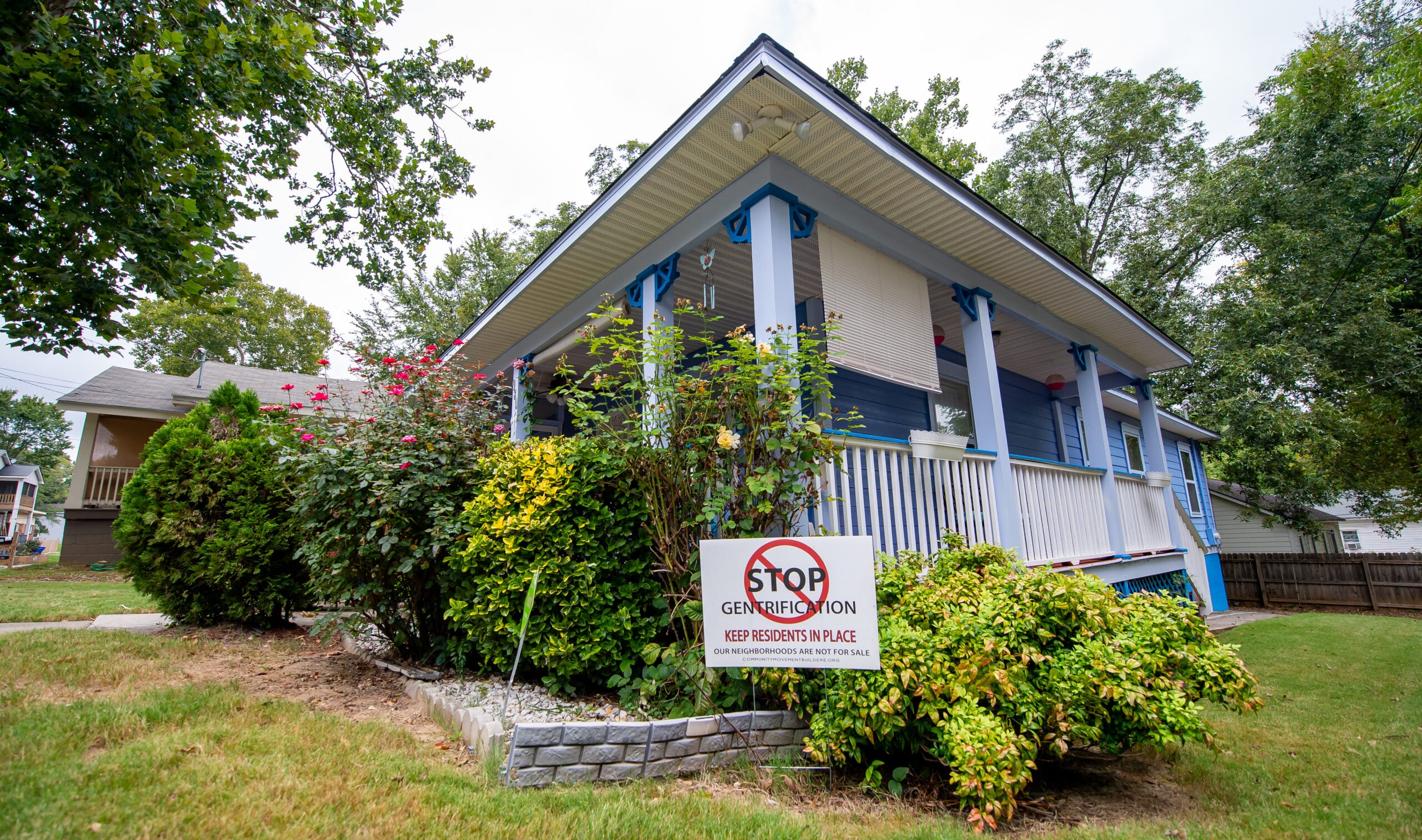Wahid Malik Shakur is aware of the criticism of investors like him.
“At 50 now, I realize people gonna always have something to say,” he said.
Investors like him are called wholesalers. They buy homes that aren’t for sale. As in, the homes have no sign out front. They’re not listed for sale online. It’s possible even the owners themselves haven’t decided to sell.
As these investors have swept through south and west Atlanta, in search of rising property values, housing advocates warn they’re predatory. They say the investors try to convince homeowners to sell for less than their properties are worth.
And an analysis of real estate records by WABE and APM Reports found in the gentrifying neighborhoods where these investors are most active, homeowners regularly sell for prices that were so low, they were half the estimated fair market value according to Zillow’s Zestimate.
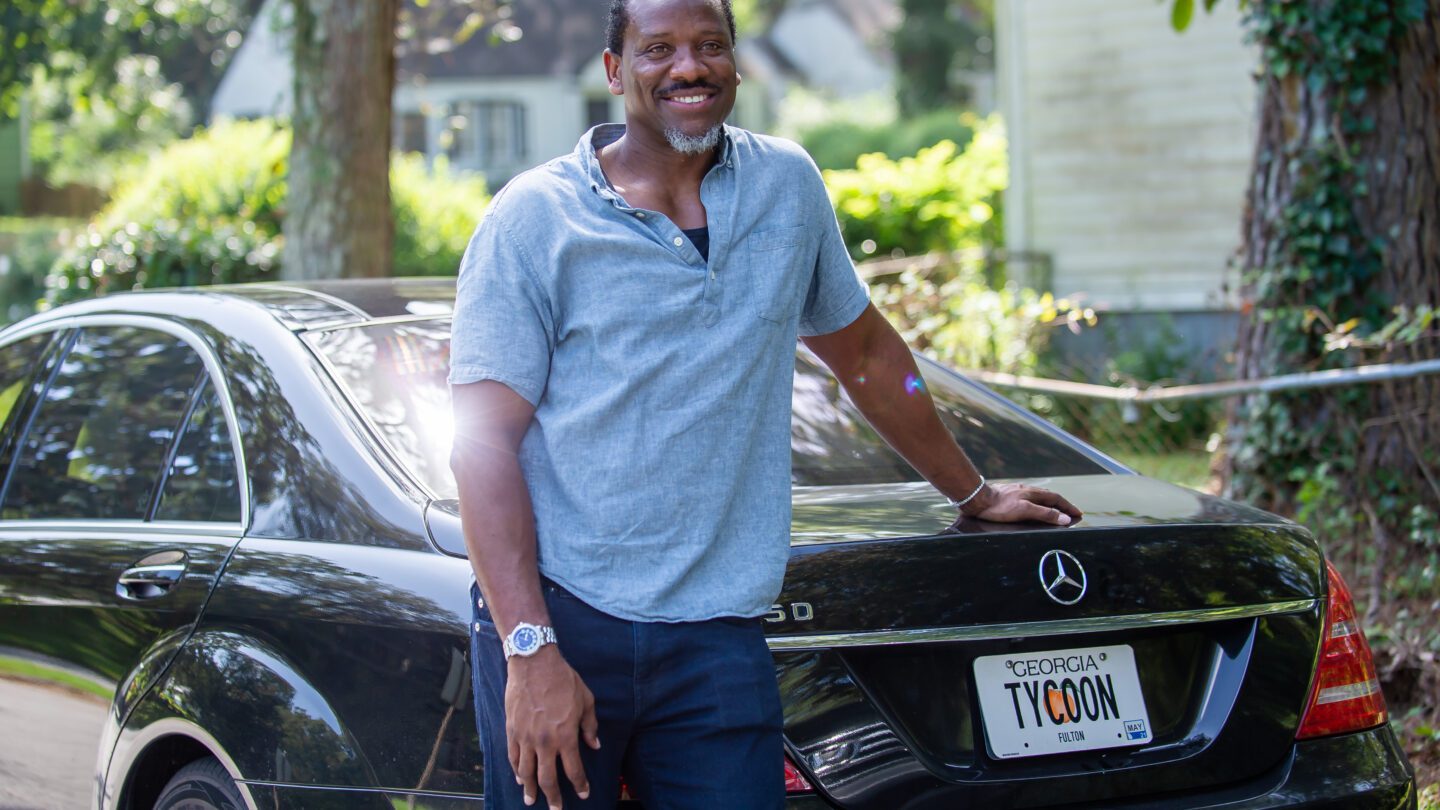
But to Shakur, what is missing from sales records and the arguments from advocates is all of the work that happens before wholesalers buy these unlisted properties off market.
“The challenges we deal with as wholesalers, it ain’t just we mail out one postcard and we make $20,000,” he said.
According to Shakur, the response rate to postcards is about 3%. So he usually has to send out a thousand, saying something like, “We buy houses for cash”
And he doesn’t just contact homeowners by mail. He’ll drive around neighborhoods looking for homes, which is known as “driving for dollars.” He also picks up the phone and calls people asking to buy their homes–known as “dialing for dollars.”
Shakur said there’s a pretty typical response from homeowners on the other line.
‘“I told you don’t keep calling my house,” Shakur said, imitating yelling. “‘Why are you calling? Where did you get my number from?’”
The anger doesn’t bother Shakur. He’s clearly proud of what he does. He’s added a tagline to his investor name, “Mr. Tycoon: The King of Wholesaling.” Shakur said all that goes into wholesaling plays a role in the real estate market.
As he drives around looking for properties in Northwest Atlanta, in areas between the new Westside Park and the Mercedes Benz stadium, Shakur stops his car to give an example.
It’s a boarded up house. The grass is overgrown. Shakur said maybe the owner is sick of it. So he’ll track down the owner and ask how much cash the person would accept for the property. If the owner says $40,000, Shakur will try to negotiate the price down.
“I would say, is that the best you can do? Technique,” Shakur said, pointing a finger at his head.
Once the owner lowers the price to, say, $35,000, Shakur doesn’t keep the house. He looks for another investor to buy the home, this time, for $45,000. Then, Shakur does what’s called a “double closing.” He buys and sells the home within the same day.
Shakur’s end of the deal is done. It’s the second investor who will renovate the property. Shakur just connected two dots in the real estate market–an owner sitting on an unlivable home and an investor looking to fix up an unlivable home–and he took a $10,000 cut.
“What we’re doing is not illegal. We provide a service,” Shakur said. “I’ll show you pictures of me at closing. People are smiling because they got what they want and they had a need.”
But plenty of people have not been smiling. On a drive around Southwest Atlanta, in the area between the new Fort McPherson development and the Westside BeltLine, Charnette Trimble said the requests from investors have been relentless.
“The people over here are under siege,” said Trimble.
The problem isn’t the wholesalers reaching out to owners of vacant properties. It’s the requests they send to homes that people still live in.

Trimble shared a letter she once received from investors. It promised that she would never have to pay another property tax bill again, so long as she sold her home. She said requests like it are aimed at residents who don’t know what their homes are worth.
“They look at the home. It’s raggedy, it’s got a leaky roof. But they don’t look at what’s really going on, it’s the land,” Trimble said. “That’s what I be preaching to people. It’s the land.”
It’s the location of the land near new development.
Emmanuel Hall didn’t know his stepdad’s home was just a couple blocks from the Westside BeltLine trail. He helped sell the place a couple of years ago after he said the family received a dozen fliers in the mail.
Hall decided to call the flier that said, “We Buy Ugly Houses.” A man came to the house, looked around, and then went to his car to run some numbers. Hall said the investor offered him $17,600. He said that was the most he could give him.
A few months later, We Buy Ugly Houses resold the home for $100,000 to another investor. The listing said the was in “as-is” condition. Then, the next investor renovated the home and sold it again for $300,000.
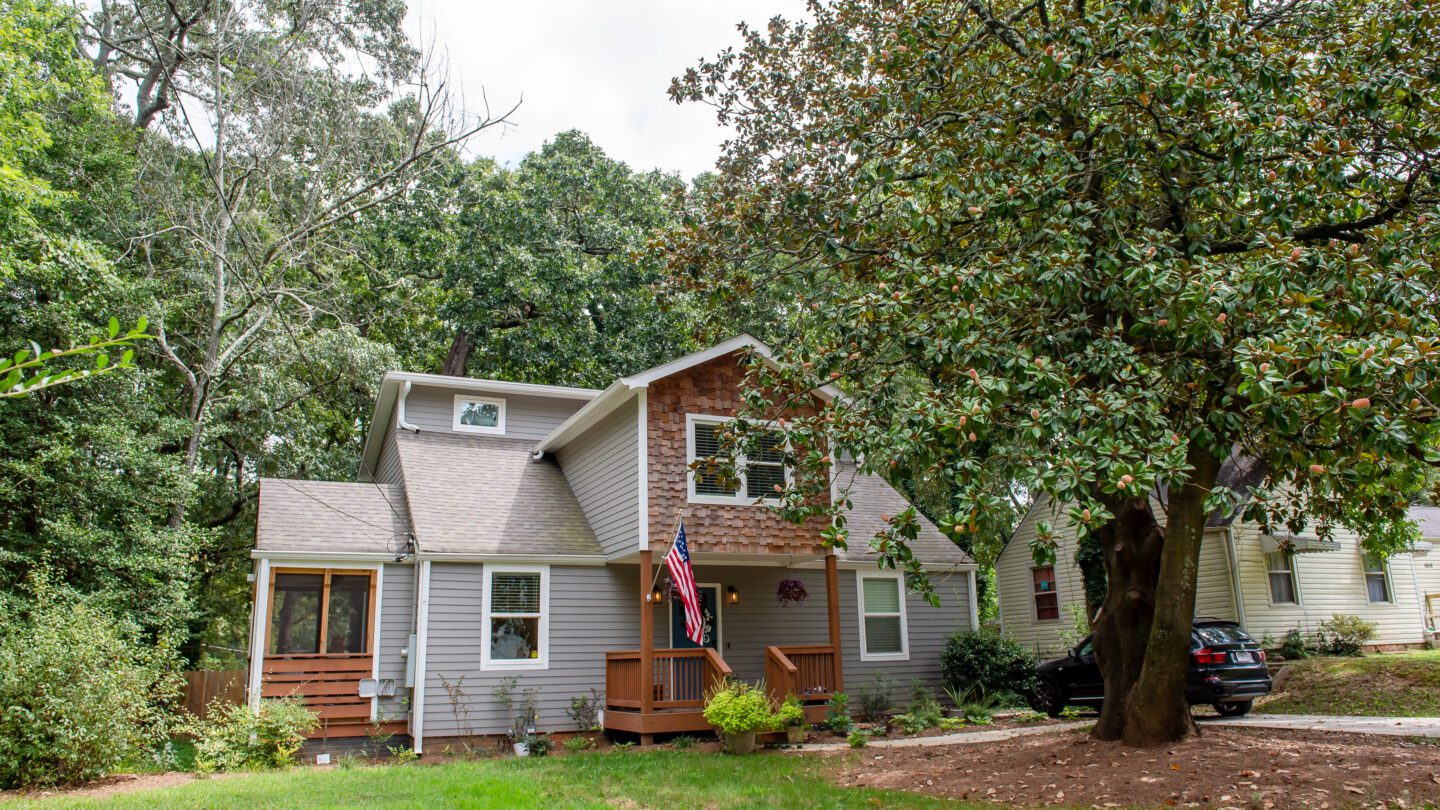
Asked whether the initial sales price to the family was fair, David Hicks, the CEO of the We Buy Ugly Houses company known as HomeVestors, said the company takes on significant risks when it purchases homes for cash without a full inspection.
He shared photos of the home showing that it still had stuff inside and the roof was damaged. Hicks said the company’s franchise, which bought the home, had to repair the home before it could even sell to an investor who would do a full renovation.
*Google Street View from July 2016 shows the home belonging to Emmanuel Hall’s family in the years before they sold it.*
Still, Hall, the initial seller, said he now regrets accepting that price, even if the home needed work. According to sales records, it was even less than his family paid for the home in the 1970s.
Hall said his stepdad’s health has deteriorated and he could have used the money from the sale to pay for the 24-hour care he now needs.
“I should have went to more people than jumping on that first offer,” he said. “But my momma, she older. I don’t know nothing about real estate at all. And my stepdad got dementia. So they got us. What can I say?”
It may not just be his family. The analysis by WABE and APM Reports showed gentrifying neighborhoods had the highest rates of properties with sales prices low enough to be half the estimated fair market value, according to Zillow’s Zestimate.
These areas also had some of the highest rates of properties with sales prices that were similarly below value when compared to the Fulton County Tax Assessor’s fair market estimate.
The sales may not be illegal, but to Charnette Trimble they are not right. She said this shouldn’t be happening to the people who’ve lived in these neighborhoods for years.
“The long-term residents who’ve had to put up with all the crap we’ve had to deal with over here, drugs, whatever. They’ve put in for this city,” she said. “And they should not be taken advantage of because they don’t know any better.”
She said they deserve to benefit.
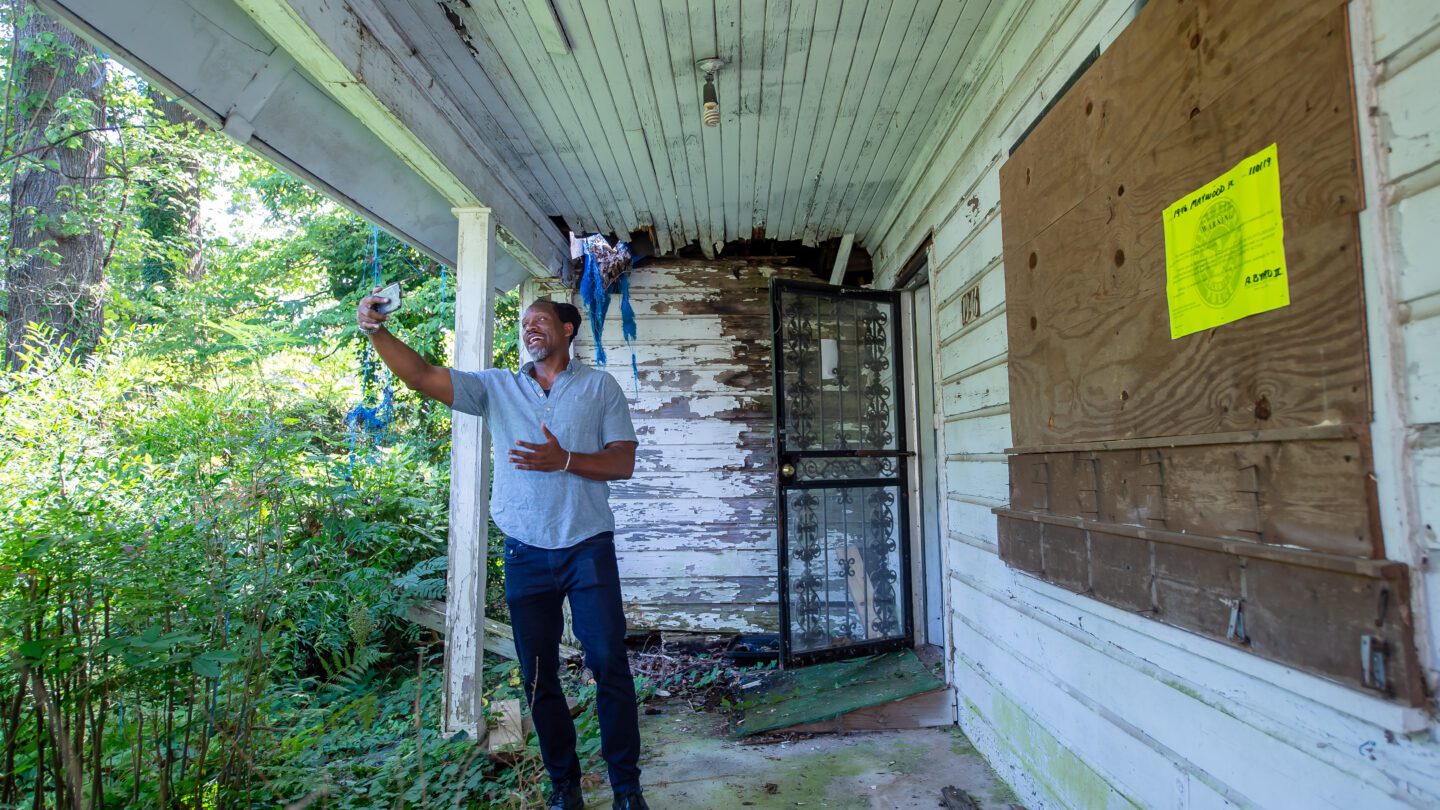
After hearing all of these concerns, Shakur, the wholesaler, still doesn’t understand why they’re directed at wholesalers. He said they didn’t cause disinvestment in these Atlanta neighborhoods. And they’re not behind the new development that’s making properties more valuable now.
Shakur sees wholesalers like any other entrepreneurs.
“I’m like this is a good thing that people are learning this trade of wholesaling and it’s a stepping stone,” he said.
Because wholesalers buy and sell properties so quickly, they don’t need their own money to get started in the business. Shakur said many start out like him, in working class, minority families.
Now after 20 years as an investor, he said he has the resources to take care of his wife and son. Shakur said he has freedom, thanks to real estate.
Wholesalers are looking to grow their wealth, just like homeowners are, he said.
“America is where people come for the American dream,” Shakur said. “And doing wholesaling is one of those vehicles that can provide you with that American dream.”
This story was possible with support from America Amplified, a public media initiative, and the Corporation for Public Broadcasting. It was produced in collaboration with APM Reports, the investigative reporting unit of American Public Media.
